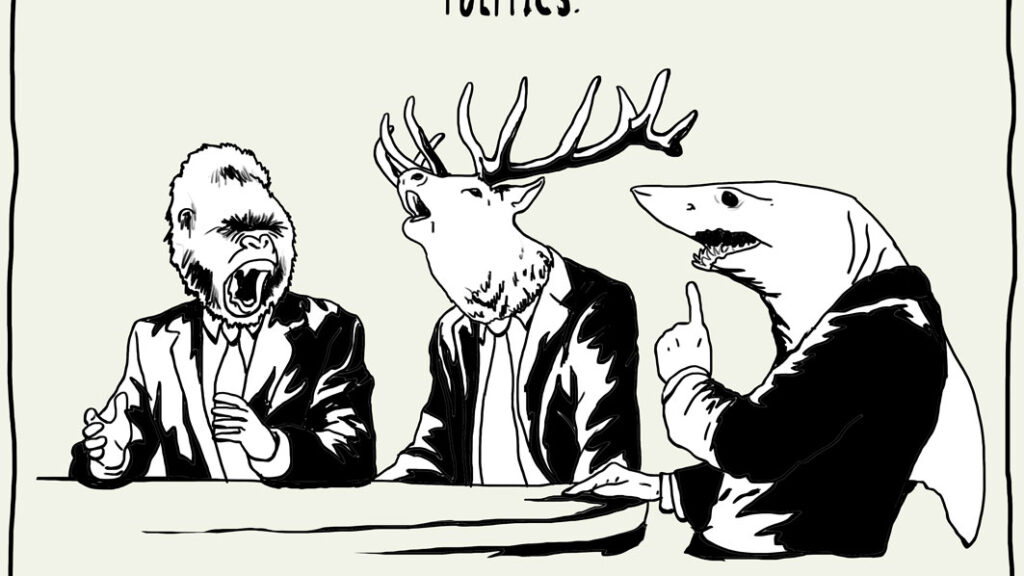No matter what country we live in, what culture we’re a part of, or what religion we practice, everything in our world revolves around a single goal: attaining happiness.
This far-off-but-acheivable-if-you-follow-the-rules happiness is our own personal autocrat. In a capitalist society, the happiness dictator demands that if we study hard to gain a career, we can work hard to earn money to buy things that make us happy. In a communist society, the happiness dictator demands that if we all work hard to produce enough to share then everyone will be equally happy. Meanwhile, a Catholic happiness dictator tells us that if we follow the word of the Bible and repent for our sins, we will hit the happy lottery and win a one way ticket to heaven.
It’s all a rat race to nowhere. A new iPad won’t bring lasting happiness any more than having the same amount of potatoes as your neighbor or confessing to a stranger in a box. And still, we follow the rules of these mythical ideas because somewhere out there, just out of our reach, is the happiness we’re promised.
Happiness is a paradox. The more we look for it, the more we become aware that we don’t have it. And when we’re asked to define what happiness is and why we want it, the answer is unclear. Is happiness just the absence of pain? Satisfaction? Having hope? Experiencing love? To want for nothing?
The Dutch do a better job of breaking down happiness into meaningful definitions. Lykke is the Danish word for sort of elusive feeling we search for, the sort of deep happiness that comes only once in a while but feels so good. It is inherently fleeting and often out of our control. Glad is more of a nothing-out-of-the-ordinary contentment, or general satisfaction with the trajectory of one’s life.
(In my view, lykke is a feeling and glad is a state, which means this newsletter should really be titled, “Glad is a Skill, Lykke is a Bonus.”)
According to Buddhism, most people identify happiness with pleasant feelings, and all of life is a quest to feel more pleasure. The problem, though, is that feelings are fickle. We experience joy, then we are dissatisfied when joy dissipates, which leads to malaise, which prompts us to search for joy again. We rinse and repeat this cycle, never gaining any meaningful last effects and constantly subjecting suffering for it. Hence the Buddhist mantra, “Life is suffering.”
Buddhism argues that the only way to relieve this suffering is to understand the impermanent nature of all feelings which leads us to stop craving happiness. To truly understand that all feelings come and go—satisfaction, boredom, anger, panic, joy, malaise—is the whole point of mediation.
Some people get this concept more than others. They’re the ones who seem to shrug it all off and keep on whistling. Then there’s the rest of us, myself included. I have to put in work to recognize that not only am I in a constant state of craving, but that I am actively convincing myself I can hold onto more happiness if I can just change something out there. But I have also touched on a handful of moments—typically in meditation or walking in nature—where I tap into a state of being that demands nothing from the world around me. In those moments, I know I have everything I need and that who I am is not the home I live in or the job I do or how I feel about the things I have. Gratitude and lykke rush through me and out of me, leaving a hum of glad with no external attachment.
These moments are transient. I am in no way a master of remaining in this state, but they remind me that it is possible stop all the wanting and simply just be.
The money, job, marriage myth: are you happy yet? | Books | The Guardian
One of the biggest issues I’m currently working on is untangling the idea that money and jobs with prestige and praise = success. This article helped unravel some of my mental knots; 87% of florists say they’re happy compared to 64% of lawyers, and the happiest people work 21 – 30 hours a week.

Why Finland And Denmark Are Happier Than The U.S. — www.youtube.com
What does it take to be happy? The Nordic countries seem to have it all figured out. About those high taxes: When paying hefty tariffs means it costs only $300 to have a baby, homelessness is nearly eradicated, and the government will support you while you quit your day job and go to art school…well, it seems people are more than happy to shell out.

The Key to Finding Happiness: Stop Trying to Be Happy | Mark Manson — markmanson.net
Though they seem at odds, Manson’s call to stop trying to be happy aligns exactly with my theory of happiness as a skill. Happiness, he says, is not something you achieve. It’s the side effect, rather, of getting your life in order.
More articles from the blog
see all articles
October 28, 2022


